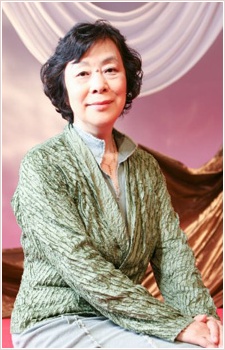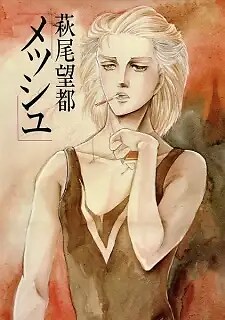
Moto Hagio

Animeography
Mangaography

11-gatsu no Gymnasium
Story & Art
11-nin Iru!
Story & Art
A-A'
Story & Art
Abunai Oka no Ie
Story & Art
Abunazaka Hotel
Story & Art
Akakke no Itoko
Story & Art
Alois
Story & Art
American Pie
Story & Art
Away
Story & Art
Barbara Ikai
Story & Art
Bianca
Story & Art
Blue Bird
Story & Art
Cake Cake Cake
Art

Fairy
Story & Art
Flower Festival
Story & Art
Gin no Sankaku
Story & Art
Golden Lilac
Story & Art
Hanshin
Story & Art
Houmonsha
Story & Art

Iguana no Musume
Story & Art
Koko de wa Nai★Doko ka
Story & Art
Kono Musume Urimasu!
Story & Art
Leo-kun
Story & Art
Marginal
Story & Art
Mesh
Story & Art
Mosaic Rasen
Story & Art
Nanohana
Story & Art
Neo Kiseijuu
Story & Art
Onshitsu
Story & Art
Osorubeki Kodomotachi
Story & Art
Ouhi Margot
Story & Art
Poe no Ichizoku
Story & Art
Poe no Ichizoku: Ao no Pandora
Story & Art
Poe no Ichizoku: Haru no Yume
Story & Art
Poe no Ichizoku: Himitsu no Hanazono
Story & Art
Poe no Ichizoku: Unicorn
Story & Art
Roma e no Michi
Story & Art
Samishii Toki Wa
Story & Art
Star Red
Story & Art
Tensai-tachi no Kyouen
Story & Art
Tenshi kamo Shirenai
Story
Thomas no Shinzou
Story & Art

Umi no Aria
Story & Art
Zankoku na Kami ga Shihai suru
Story & Art
About
Moto Hagio is considered a "founding mother" of modern shoujo manga, especially shounen-ai. She is also a member of the Year 24 Group. She made her professional debut in 1969 at the age of 20 with her short story "Lulu to Mimi" in Nakayoshi. Later, for Shogakukan, she produced a series of short stories for various magazines. Two years after her debut, she published Juichigatsu no Gimunajiumu (The November Gymnasium), a short story which dealt openly with love between two boys at a boarding school. The story was part of a larger movement by female manga artists at the time which pioneered a genre of girls' comics about love between young men. In 1974, Hagio developed this story into the longer Thomas no Shinzou (The Heart of Thomas). She was awarded the Shogakukan Manga Award in 1976 for her science fiction classic Juichinin Iru! (They Were Eleven) and her epic tale Poe no Ichizoku (The Poe Clan). Hagio has been the recipient of numerous awards and honors throughout her career, including the Japanese government's Order of the Rising Sun, a Medal of Honor, and commendation as a Person of Cultural Merit.

